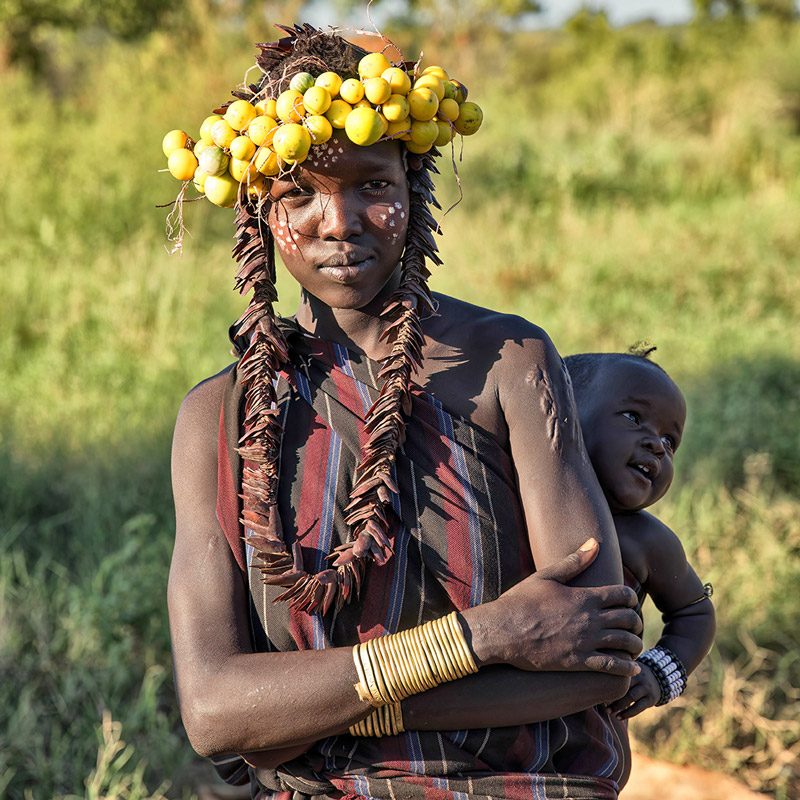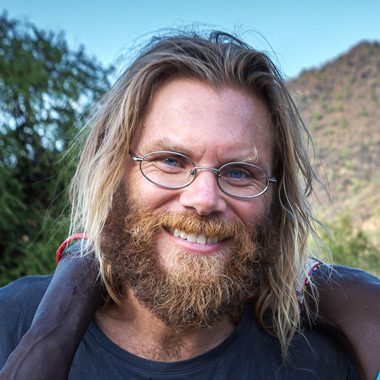Foreign visitors started visiting the Mursi people in the 1980s, attracted by their unique tradition of stretching their lower lips with wooden or clay disks. Until then, the Ethiopian region of the Omo River Valley had been closed to foreigners (including Christian missionaries and Western NGOs) since being conquered by King Menelik in the late 19th Century.
With the arrival of tourism, settlers from the overpopulated northern plateau of Abyssinia also started arriving. First, they were a few. By the early 2000s, hundreds of Afar and Oromo immigrants had made the wild Ethiopian South their home. The graving of land (by force) by the newcomers, supported by the Addis Ababa central government, and the creation of big irrigation plans to produce large-scale export crops such as sugar cane and cotton, started to create serious pressure over the Mursi. By then, the myth of the ‘Warrior Tribe’ was part of the popular imaginary, but few knew the stress these people were going through.
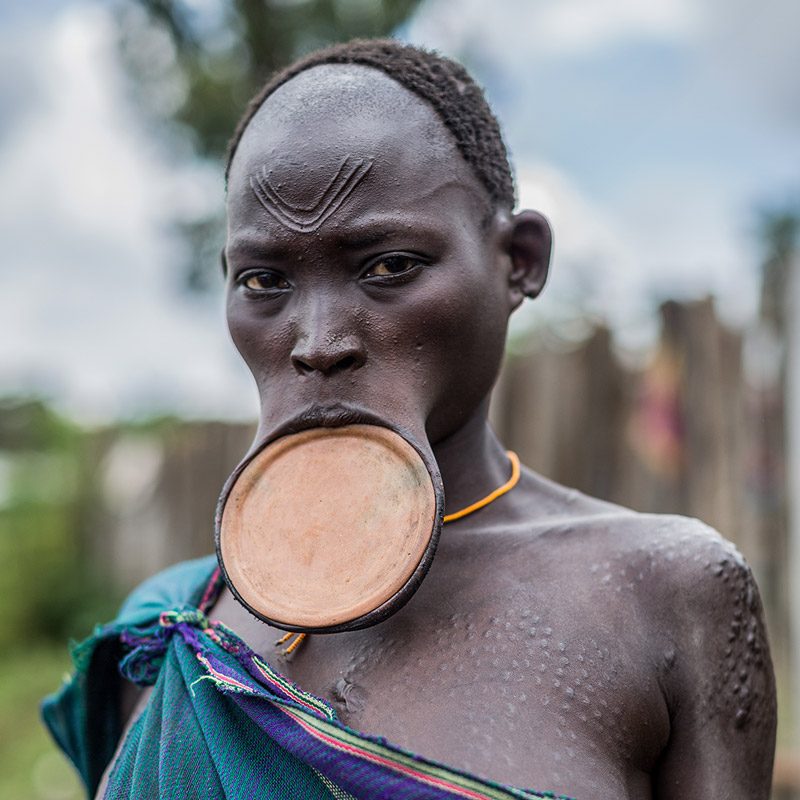
When Last Places’ team organizes trips to meet tribes that keep their own cosmology and traditional ways of economy and daily life, we have the ambition to understand their current situation. We do not like to center the travel experience on mere superficial encounters, based solely on economic exchanges and photographic collection. We want to know, to understand, and to support the cause of cultural diversity. The Mursi are fighting because their lifestyle is under threat and they are suffering abuse by the dominant society. We want to create awareness of their situation and their plight.
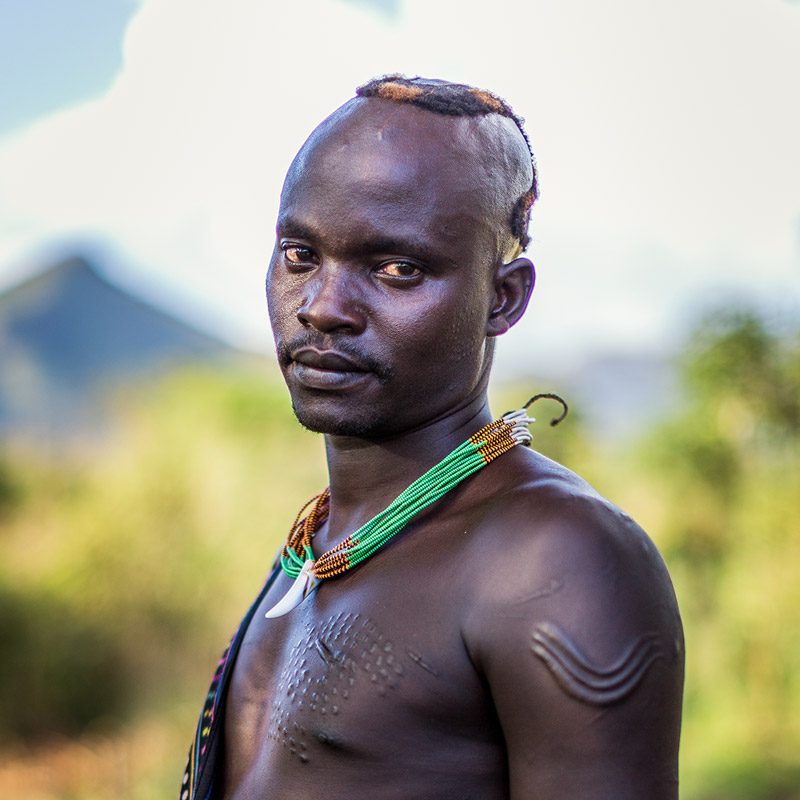
Do you want to meet the Mursi?
Join Michel Pedrero on our next trip to Ethiopia from 15 to 25 July 2024 and learn about the reality of the Mursi tribe. Click here for all the details of the trip.
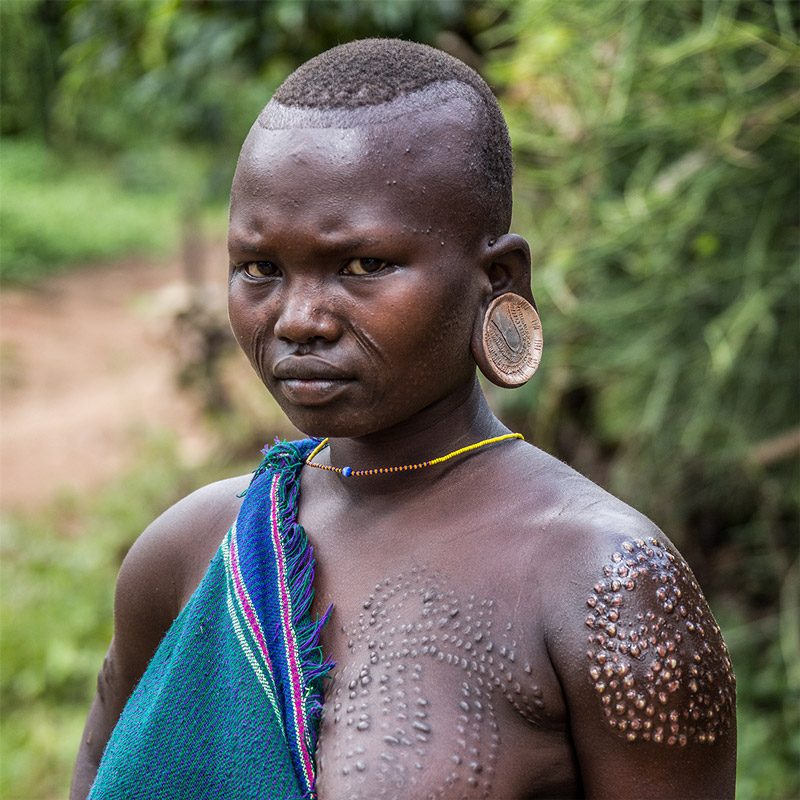
Despite the constant pressure, most Mursi are adapting to the new situation. That is a characteristic of the Human species: to survive or die. The Mursi want to continue living, and hanks to the pressure of specialized organizations and thanks to their presence in areas of the central government, their tribal land (at least part of it) is being recognized. In addition, they are allowed to live in Mago National Park, where they can move their sacred cattle for grazing and water. Big mammals hunting has been forbidden since 1978, but small-scale hunting and fishing are allowed. ‘Regulated’ tourism allows many Mursi families to have an extra income. With the money obtained by foreign visitors, the Mursi can purchase goods in the nearby Jinka market.
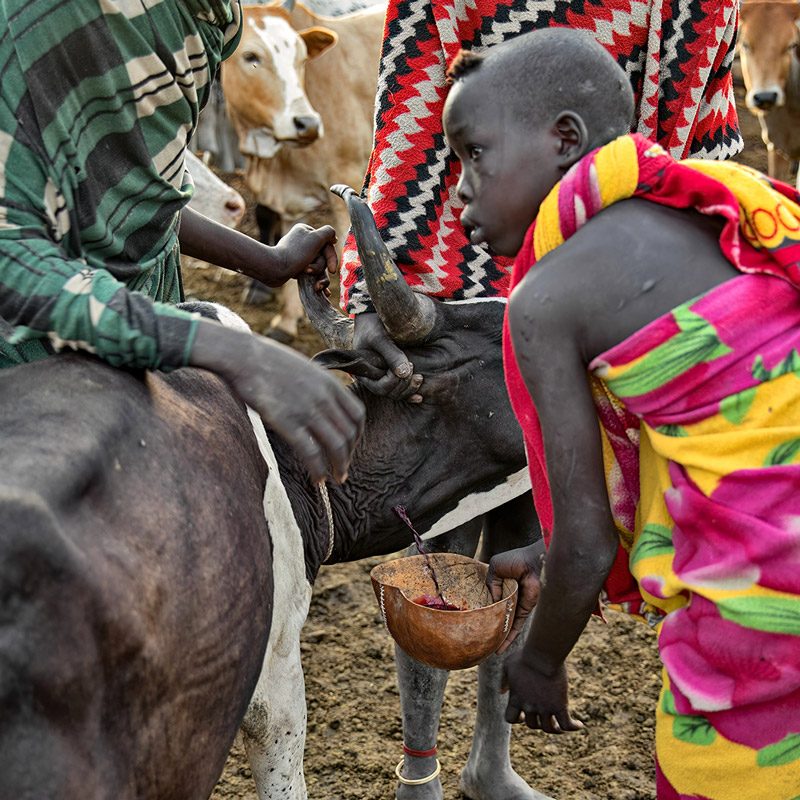
Last Places have been collaborating with the Mursi leaders and the communities since 2013, when we first visited their territory. We are trying to support these people by showing them respect and listening to their grievances and ideas. We try to bridge the gap between them and the regional authorities so that they can improve their living standards (medical support and education adapted to their semi-nomadic condition).
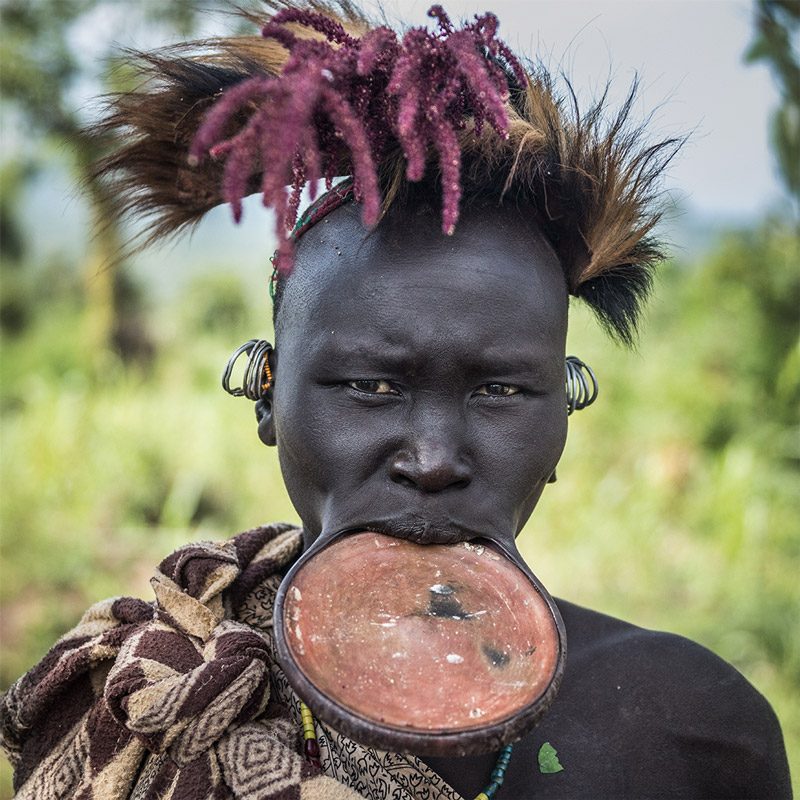
© Photos by Aníbal BuenoandJordi Zaragozà Anglès taken during a trip to Ethiopia.
